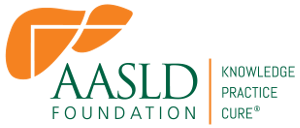Role of Microbiome in Development of Offspring Cholestatic Liver Disease after Maternal Obesogenic Diet Exposure

Grantee: Michael Thompson, MD, PhD
Institution: Washington University School of Medicine
Grant Program: Gupta Family Pilot Award in PSC Research
Project Term: July 2021 – June 2022 (Completed)
Area of Focus: Autoimmune Liver Diseases
Project Description:
Obesity and its complications affect 78 million adults and 13 million children with an estimated economic impact of $2.0 trillion per year. Growing evidence supports that events around pregnancy and early life drive risk for insulin resistance and obesity associated complications such as nonalcoholic fatty liver disease (NAFLD) in the offspring. We identified that mouse offspring exposed to maternal high fat diet have inflammation and fibrosis in the area of the liver associated with bile acids. This could have potential implications for medical conditions that cause bile to back up in the liver, one of which is primary sclerosing cholangitis (PSC). Preliminary evidence in our maternal obesogenic diet mouse model shows that offspring develop worse biliary injury. This project will define the impact of maternal obesogenic diet on offspring cholestatic liver disease. I will study the effect of perinatal maternal obesity on biliary injury and the mechanistic role of an altered gut microbiome and gut-liver axis. The first aim will evaluate changes in the gut microbiome associated with the development of worse cholestatic liver disease in our maternal obesogenic diet model. The second aim will determine whether this liver disease is worse in mice that have intestinal inflammation as most patient with PSC also have inflammatory bowel disease (IBD). The results from this work will provide important evidence for the role of maternal high fat diet exposure in driving risk for cholestatic liver disease in the offspring with a mechanistic focus on the role of the microbiome. The findings from this study will form the foundation for deeper mechanistic evaluations supported by future grants. Ultimately, these studies will not only produce a new mouse model to study the link between IBD and PSC but also set the foundation for the development of preventive approaches targeting development of PSC.
Project Outcomes Summary:
We identified that mouse offspring exposed to maternal high fat diet have inflammation and fibrosis in the area of the liver associated with bile acids. This could have potential implications for medical conditions that cause bile to back up in the liver, one of which is primary sclerosing cholangitis (PSC). Preliminary evidence in our maternal obesogenic diet mouse model shows that offspring develop worse biliary injury. The first aim of this study evaluated changes in the bacteria that reside in the gut contribute to worse disease in a diet model that induces cholestatic liver injury. We identified that changes in the gut bacteria caused by maternal obesogenic diet exposure was enough to drive this type of liver injury. While this diet model is good for understanding liver injury, it does not involve injury to the intestine which is present in 75% of patients with PSC.
The second aim of this study evaluated whether maternal obesogenic diet exposure would worsen liver injury during intestinal inflammation. We did observe more pronounced liver inflammation and fibrosis in offspring that were exposed to maternal obesogenic diet when intestinal injury was induced. However, this injury did not seem to be due to changes in the gut bacteria like we observed in the diet model in Aim 1. Future work will continue to identify the cause for liver injury in the model from Aim 2 which could potential provide clues for targets of new therapies. This work may also set the foundation for the development of preventive approaches targeting development of PSC.
Selected Publications:
Maternal Obesogenic Diet Enhances Cholestatic Liver Disease in Offspring
Thompson MD, Hinrichs H, Faerber A, Tarr PI, Davidson NO
J Lipid Res. 2022;63(5):100205. doi:10.1016/j.jlr.2022.100205
Personal Impact:
Support through this award mechanism has been beneficial to further expand my developing research program and support my career development as a young investigator. The data developed from this award has allowed for one manuscript that is already published and a second manuscript in process. The results from these studies will also serve as the preliminary data for an R01 submission that I plan to submit in the next year further evaluating the
mechanisms of worse cholestatic liver disease following maternal obesogenic diet exposure. We also plan to develop an IRB to collect stool samples from children with PSC and evaluate for some of the same changes in the microbiome involved in this study including metagenomics and stool metabolomics analysis. Given the potential connection between lipid metabolism and PSC pathophysiology, we plan to procure biopsy specimens from patients with PSC to explore shifts in metabolism in human tissue. Support from this award has also put me in position to
present this research both locally and at national meetings. This has provided great opportunities for networking and further support my career development. I plan to attend The Liver Meeting again this year to continue to share my work with the larger liver research community and develop new relationships with investigators from other institutions.
About the Grantee:
I completed my undergraduate education at Washington University in St. Louis where I was first exposed to biomedical research. I spent a gap year in the NIH Post-Baccalaureate Intramural Research Training Program and subsequently joined the Medical Scientist Training Program at the University of Pittsburgh where I received an MD and PhD in cellular and molecular pathology (2004-2012). My thesis work focused on to evaluating the role of the signaling molecule β-catenin in mouse models of hepatocarcinogenesis and cholestatic liver disease. Most relevant to my current work, we uncovered a role for β-catenin in cholestatic liver disease by regulation of bile acid metabolism via an interaction with FXR, a primary nuclear receptor for bile acids. I then moved to Nationwide Children's Hospital where I completed my residency in Pediatrics and fellowship in Pediatric Endocrinology (2012-2017).
During my clinical training, I was consistently struck by the rising prevalence of obesity and its associated complications, including insulin resistance and nonalcoholic fatty liver disease (NAFLD), in children. With my background in liver pathophysiology, I began to study NAFLD with a specific focus on developmental programming after exposure to maternal obesity. Clinical association from birth cohorts as well as data from animal models support that maternal diet primes risk for development of NAFLD in the offspring. We have identified that offspring also have altered bile acid homeostasis, which led to our interest in evaluating the impact of maternal diet on development of cholestatic liver disease.
My primary career goal is to become an independent physician-scientist studying preclinical models and fundamental mechanisms to guide strategies for prevention and management of patients with NAFLD and cholestatic liver disease. A further understanding of the fundamental mechanisms behind developmental programming of liver disease will position me ultimately to develop novel therapeutic interventions targeted at disease prevention.
Grantee ORCID Record:
https://orcid.org/0000-0003-3858-7516
More Information*:
PSC Partners Seeking a Cure Basic PSC Facts
*Resources are provided for information purposes only and inclusion does not imply AASLD Foundation endorsement or recommendation.
Page last updated January 2023

